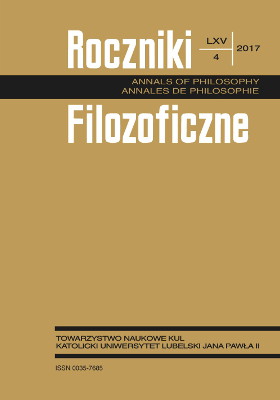Debata Dummett–Lash i bezpośredniość Objawienia
The Dummett–Lash Debate and Unmediated Revelation
Author(s): Krzysztof CzerniawskiSubject(s): Philosophy, Special Branches of Philosophy, Philosophy of Religion
Published by: Towarzystwo Naukowe KUL & Katolicki Uniwersytet Lubelski Jana Pawła II
Keywords: Michael Dummett; Nicholas Lash; Bede Griffith; dogmas of faith; allegoric interpretation; revelation; rationality of religion
Summary/Abstract: In the article, I summarize the so-called “Dummett – Lash debate” that took place in the pages of the English Catholic journal New Blackfriars in the years 1987–1989. I discern three main streams of the debate. In the first, the main opponent of philosopher Michael Dummett, the initiator of the debate, was Benedectine Bede Griffith, who proposed a symbolic way of understanding the Bible. Dummett responded that any symbolic understanding depends on a previous literal understanding, which therefore cannot be rejected. In the second stream, Dummett argued that we need intersubjective justification of our belonging to a particular Church, because otherwise we could not give any reasons why those who don’t profess Christianity should change their views. His main point wasn’t challenged, but some participants of the debate questioned some details of the nature of this justification and entire paradigm of thinking in confessional terms. The third and focal point of the debate was Dummett’s insistence that contemporary Catholic biblical studies depart from traditional Catholic teaching and therefore it is necessary to pronounce the limits of admissible reinterpretation of the articles of Catholic faith. Many theologians who took part in the debate saw this as a threat to academic freedom, and the most important of them, University of Cambridge Professor Nicholas Lash, pointed out that Dummett’s pronouncement also needs interpretation, since otherwise establishing the limits of possible reinterpretation would be simply impossible. In the end of the article, I come to the conclusion that we can see Dummett both as a philosopher who tries to treat religion rationally and as a simple Catholic layman who wants to have direct access to revelation without the mediation of biblical experts.
Journal: Roczniki Filozoficzne
- Issue Year: 65/2017
- Issue No: 4
- Page Range: 225-250
- Page Count: 26
- Language: Polish

